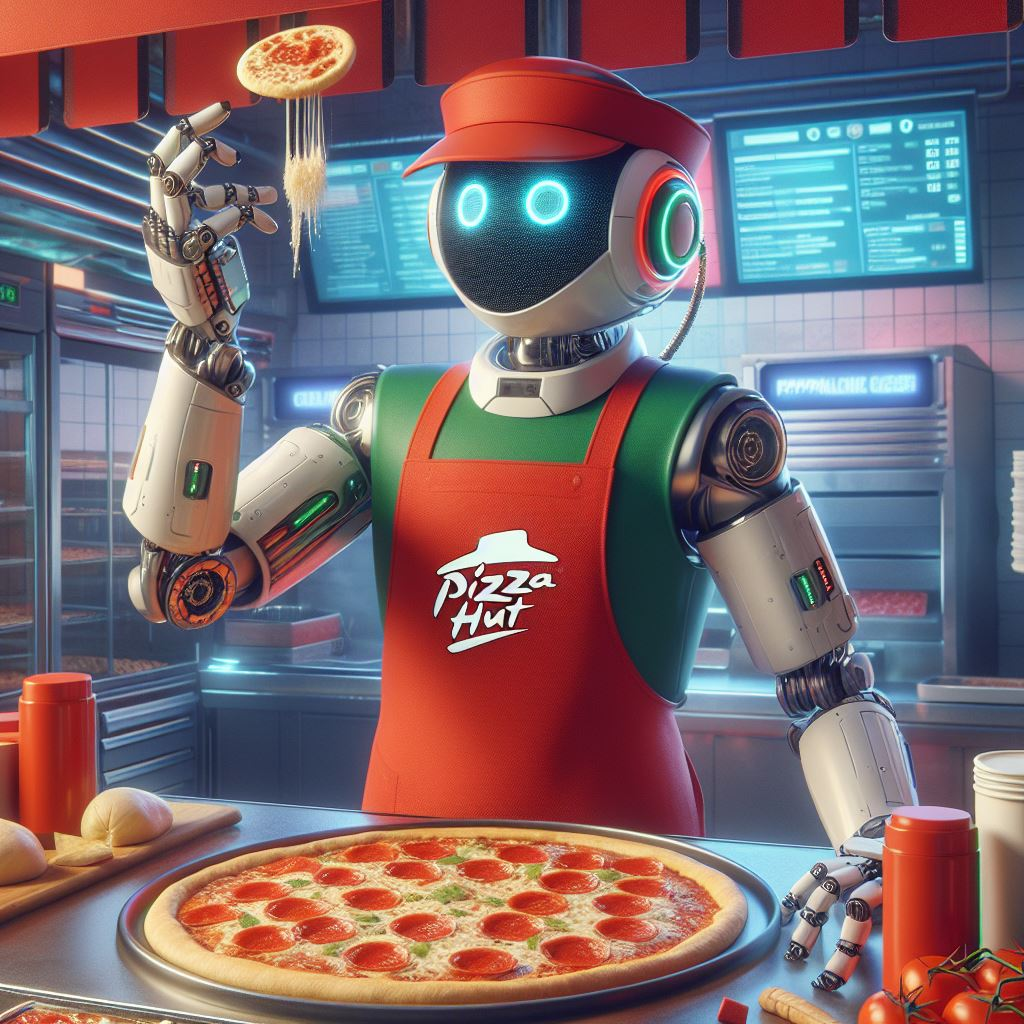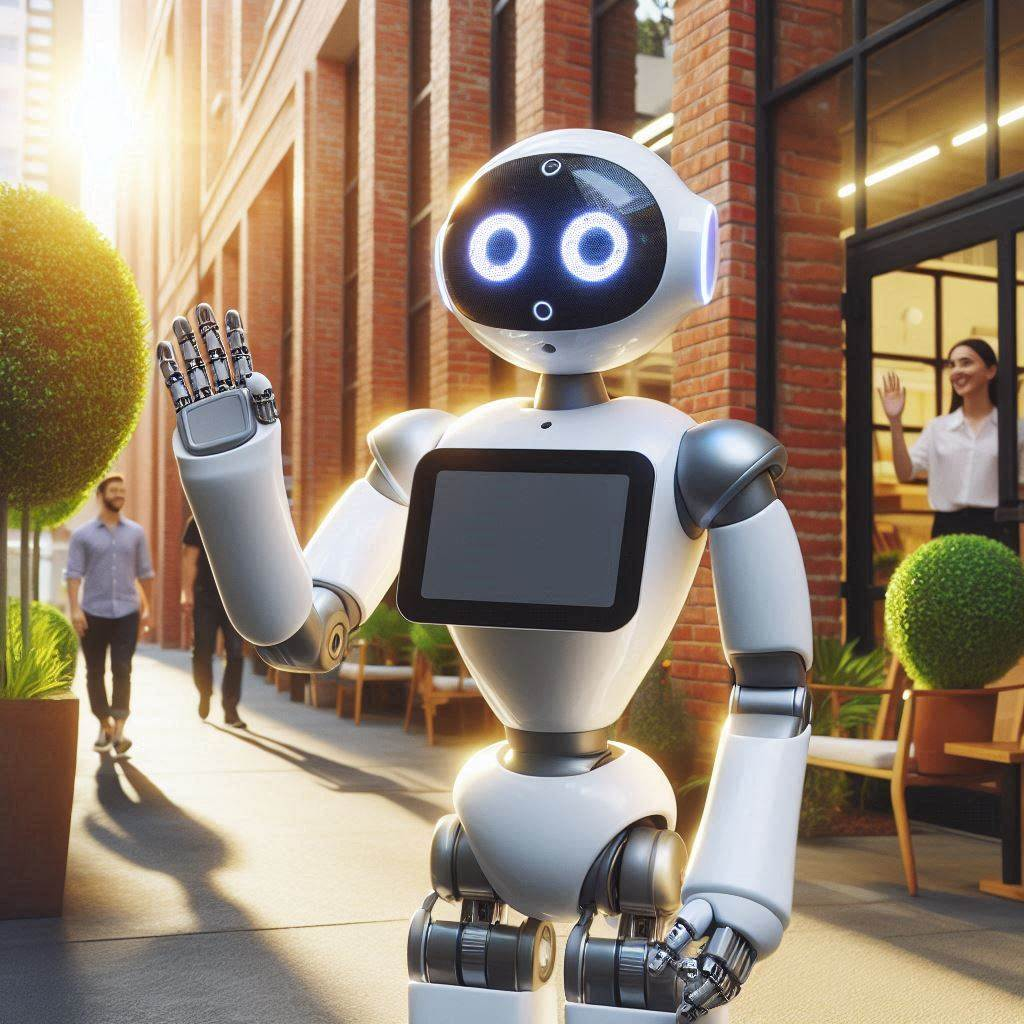AI Revolutionises Fast Food Industry
In today’s digital age, the buzz around artificial intelligence (AI) seems to be permeating every corner of industry and commerce. From healthcare to retail, and now even fast food, companies are embracing an “AI-first mentality” as they seek to revolutionise their operations and stay ahead of the curve. One such corporate giant diving headfirst into this AI revolution is Yum Brands, the parent company of popular chains like Taco Bell, Pizza Hut, KFC, and Habit Burger Grill.

Led by Joe Park, Yum Brands’ chief digital and technology officer, the company is ramping up its investment in technology and automation. With approximately 45% of its sales now coming from digital channels, Yum is doubling down on its commitment to leveraging AI to shape nearly every aspect of its restaurants’ operations. But what does this AI-first approach really mean for the future of fast food?
At its core, the adoption of AI by Yum Brands signifies a significant shift in how fast-food chains are adapting to the challenges and opportunities of the digital age. As consumer behaviour evolves and competition intensifies, companies like Yum are betting big on AI to drive sales, lower costs, and enhance customer experiences. But amidst the hype, questions arise about the true impact of AI on the industry and its workforce.
Park envisions a future where AI is seamlessly integrated into every facet of Yum’s restaurants, from kitchen management to customer-facing applications. Tools like generative AI, the technology behind ChatGPT, are poised to become ubiquitous, assisting franchisees and employees alike in their daily operations. Imagine a scenario where restaurant managers can rely on AI-powered assistants to answer questions and streamline tasks, freeing up time for more strategic decision-making.
But it’s not just about improving efficiency and productivity. Yum Brands is also exploring how AI can enhance the customer experience, with initiatives like voice AI for drive-through orders and image recognition to monitor wait times. By harnessing the power of data and machine learning, Yum aims to deliver personalised offers and recommendations to customers, ultimately driving loyalty and increasing sales.
Of course, the rise of AI in the fast-food industry is not without its challenges and controversies. Concerns about job displacement loom large, as automation threatens to replace human workers in certain roles. However, Yum Brands is quick to emphasise that its employees will continue to play a critical role in the company’s operations, with AI serving to augment rather than replace human labour.
Yet, as Yum Brands and its competitors forge ahead with their AI-driven initiatives, scepticism remains. Customers haven’t always been impressed with AI-powered drive-throughs, and experiments like dynamic pricing have sparked backlash. Finding the right balance between technological innovation and customer satisfaction will be key for companies navigating this brave new world of AI-powered fast food.
Despite the challenges, the potential benefits of AI in the fast-food industry are too significant to ignore. By embracing an AI-first mentality, companies like Yum Brands are positioning themselves for success in an increasingly digital and competitive landscape. Whether it’s streamlining operations, enhancing customer experiences, or driving sales, AI has the potential to reshape the future of fast food as we know it.
In this rapidly evolving landscape, the role of AI in the fast-food industry extends beyond mere operational efficiency. It’s about staying relevant in an increasingly tech-savvy world where consumer expectations are higher than ever. With the rise of delivery apps, mobile ordering, and contactless payments, customers expect a seamless and personalised experience at every touchpoint.
For Yum Brands and other fast-food chains, AI represents not just a technological upgrade, but a strategic imperative for survival. By harnessing the power of AI to analyse customer data, predict trends, and tailor offerings, companies can gain a competitive edge in an industry where margins are tight and competition is fierce.
But the benefits of AI extend beyond the bottom line. By automating routine tasks and freeing up employees to focus on higher-value activities, AI has the potential to improve job satisfaction and employee retention. With the right training and support, workers can embrace AI as a tool to enhance their skills and deliver better service to customers.
Of course, the road to AI-powered fast food is not without its challenges. Privacy concerns, data security, and ethical considerations loom large as companies collect and analyse ever-increasing amounts of customer data. Ensuring transparency and accountability in AI algorithms will be essential to building trust with consumers and regulators alike.
Moreover, the human element remains crucial in an industry built on personal interactions and customer service. While AI can augment certain aspects of the fast-food experience, there are some things that only a human touch can provide. Whether it’s a friendly smile, a sympathetic ear, or a reassuring presence during uncertain times, human employees play an irreplaceable role in creating memorable dining experiences.
As Yum Brands and its competitors navigate the complexities of AI adoption, collaboration and cooperation will be key. By sharing best practices, collaborating on research and development, and engaging with stakeholders across the industry, companies can maximise the benefits of AI while mitigating its risks.
In the end, the success of AI in the fast-food industry will depend not just on technological prowess, but on a deep understanding of customer needs and preferences. By putting the customer at the centre of their AI strategies, companies can create experiences that are not just efficient, but truly delightful.
So the next time you order a Crunchwrap Supreme or a bucket of fried chicken, take a moment to appreciate the invisible hand of AI working behind the scenes. And remember that while technology may change, the simple pleasure of enjoying a delicious meal with friends and family will always remain timeless.
As Yum Brands continues to invest in technology and innovation, one thing is clear: the age of AI-powered fast food is here to stay. And while the full extent of its impact remains to be seen, one thing is certain: the future of fast food will be anything but predictable. So the next time you place an order at Taco Bell or Pizza Hut, remember that behind the scenes, AI may be playing a bigger role than you realise.
for all my daily news and tips on AI, Emerging technologies at the intersection of humans, just sign up for my FREE newsletter at www.robotpigeon.be






